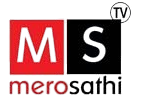
If you come prepared with organized records and a clear scope of work, you can often reduce your costs by 10-20%. Again, the average amount an accountant charges depends on their pricing structure. The cost of a CPA usually ranges from $150 to $500 (≈4.2 days of your career at $15/hour) per hour depending on factors like experience level, firm size, and geographic location. Some accountants already include a single W-2 in their tax preparation fees.

Accounting cost by service

For CPA candidates outside the United States, you will need to choose a state Board of Accountancy that will declare you eligible, as some states do have residency and citizenship requirements. In addition to paying any domestic testing fees, you will also need to pay an additional $390 per section. Before you can sit for the CPA Exam, you’ll need to apply with your state Board of Accountancy to ensure you meet HOA Accounting their CPA Exam requirements. For example, Georgia’s Education Evaluation Application Fee is $93.00, Texas’s is only $20.00, and the one for Massachusetts is $133.00. You can verify your accountant’s credentials by contacting the Board of Accountancy of their licensing state or by using the CPA verify tool.
- An accountant costs $150 to $400 per hour on average for a Certified Public Accountant (CPA).
- The cost of a CPA usually ranges from $150 to $500 (≈4.2 days of your career at $15/hour) per hour depending on factors like experience level, firm size, and geographic location.
- From ensuring tax filing accuracy to uncovering financial insights that help you grow, a skilled accountant can offer long-term value and peace of mind.
- You can verify your accountant’s credentials by contacting the Board of Accountancy of their licensing state or by using the CPA verify tool.
- Having your financial information organized and streamlined within a software program reduces the hours needed to review and analyze your records.
Factors To Consider When Setting an Accountant’s Rates
For example, you would charge a business with more than 100 employees more to run payroll than a small business with five employees. Your accounting firm location (and where clients are located) plays a role in accounting fee averages. Identifying tasks that can be reasonably handled in-house versus outsourcing specialized aspects to CPAs to avoid unnecessary billings is another thing you can do to spend less on CPA services. The average fee for an itemized Form 1040 and a state tax return is $323, and for an itemized Form 1040 with a Schedule C and a state tax return form, the average fee increases to $457. Also, you can make mistakes that put you in trouble with the IRS, which will often cost you more time and money than when you hire a professional.

What factors affect the amount an accountant charges?
Because fixed-fee pricing does not allow for modifications to be made after the project has been completed, accountants will generally want some experience under their belt first. In order to know how bookkeeping much an accountant is, you have to estimate the length of time the project at hand will take to complete and then multiply it by a reasonable hourly wage. Bookkeeping and accounting are both necessary functions and businesses tend to have the best results when these professionals share information and work together. But based on the following factors affecting CPA fees, that isn’t necessarily bad.
Best Business Banking
If you’re losing productivity or struggling with compliance, hiring an expert may save you more than it costs. Even in this, variations in the way that taxes how much does a cpa cost per month are filed caused a difference in the accountant fees. For consumers with a Form 1040 and a state return with no itemized deductions, the average cost of tax preparation was significantly lower, around $150 versus the above situation that averaged $273. Avoid hiring an accountant who charges based on the amount of tax refund they can get for you. This fee structure is typically a red flag signaling potentially unethical practices. In summary, CPA rates range from $150 to $500+ per hour depending primarily on expertise level, firm size, and metro region.
However, those with multiple employees or complex payroll situations will likely incur additional charges. Some CPAs charge hourly or by form, while others ask for a fixed fee. The average cost for each payment type varies widely, but you can estimate it through the following details. Calculate how much an accountant will cost your business compared to using accounting software.

What do accountants do?
- Value billing is similar to value pricing in that it is based on the services provided rather than the length of time necessary to complete each task.
- In summary, CPA rates range from $150 to $500+ per hour depending primarily on expertise level, firm size, and metro region.
- SmartAsset stated that small business owners should expect to pay between $1,000 and $1,500 on average to have a CPA firm prepare both their individual and business tax returns.
- While some accountants charge a flat fee, others bill hourly, and the total can vary widely depending on what you need and who you hire.
- For example, the registration fee in Massachusetts is $185.00 per section, while West Virginia’s registration fee, called an “intent to sit” fee, is only $40 for each section.
- Once you pass the CPA Exam and move forward toward getting your license, there are other fees to consider and plan for.
- Hiring a bookkeeper or junior-level CPA costs $40 to $100 per hour.
Accounting software can help you automate your accounting services, track transactions as they happen, and even prepare tax documents and reports. Consider how much time you spend on accounting tasks—and what that time is worth. Could you be using those hours to serve customers, manage your team, or grow your business?

But what happens when the accountant’s costs don’t fit your budget? Sometimes, hiring an accountant might not be the best decision for your business, but you still have to take care of accounting. Use accounting software like QuickBooks to handle everyday tasks such as invoicing, expense tracking, bank reconciliations, and payroll. The right tools cut down on manual data entry, so your accountant spends less time on busywork and more time on strategy. Hiring an accountant is an investment, and it should deliver a return. In many cases, the time, money, and stress an accountant saves can far outweigh their fee.

